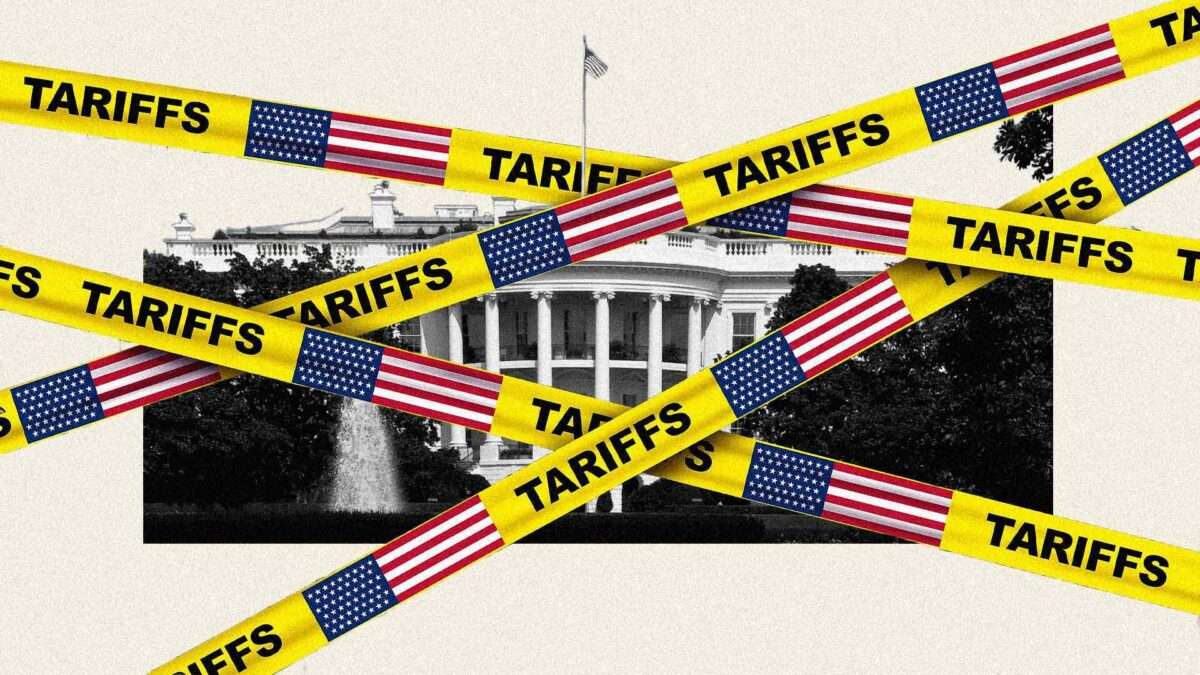
Fifty years ago, I sat in a classroom at Stanford University and listened to the legendary network news producer Fred Friendly discuss the critical importance of a free and unfettered news media to safeguard democracy. Friendly symbolized integrity in broadcast journalism, as did his partner at CBS News, Edward R. Murrow. That’s when I knew I wanted to pursue a career in TV news, which I did for the next 30 years. While reporting for the ABC affiliate in Washington, D.C., I also went on assignment to Russia and other authoritarian regimes like Vietnam and Paraguay. I saw first-hand what happens when people don’t have access to the truth about their government.
It was with great humility and honor that I was appointed in 2023 by President Joseph Biden and confirmed by the U.S. Senate to serve on the bipartisan International Broadcasting Advisory Board. Congress created the board to oversee the U.S. Agency for Global Media (USAGM), the parent organization of the Voice of America (VOA), where Murrow himself served in the 1960s. Our primary duty is to protect the independence of the government’s five news networks from political interference, ensure that reporting is professional and fact-based, and appoint or remove directors of the networks.
Our board of three Republicans and three Democrats supported USAGM’s nonpartisan mission to inform, engage, and connect people in countries where independent journalism doesn’t exist. On a daily basis, I saw bold and insightful reporting by journalists who defend and advance American interests and values at considerable sacrifice, including Alsu Kurmasheva, who was detained in Russia until the prisoner exchanges last fall.
This past month, I watched President Donald Trump’s demolition of USAGM and imagined the reaction of Murrow, Friendly, and the army of honest and courageous journalists on the frontline of freedom. In the stroke of his Sharpie pen, he has effectively killed VOA, Cuba Broadcasting, and the other independent news networks funded by grants from USAGM. These include the storied Radio Free Europe/Radio Liberty, Radio Free Asia, Middle East Broadcasting, and the nascent Mandarin-language Global News Service.
Reporting in 50 languages through radio, TV, digital, and social platforms, these networks reach a global audience of 427 million people in dozens of countries without a free press. Besides informing people in repressive societies with fact-based news, they model the constitutional premise of a free press. All surveys show that they are highly trusted sources of news. As we know, in our own country, the “public’s right to know” is essential to a free and democratic society, which is why it is enshrined in our First Amendment.
The networks were created to meet the moments of history over the past 70 years to combat misinformation and propaganda from authoritarian regimes, including the Soviet Union after World War II, Eastern Europe during the Cold War, Cuba during the Castro regime, China after Tiananmen Square, and the Middle East after 9-11. The mission has been supported by both Republican and Democratic Presidents and members of Congress. In a world of growing disinformation, their mission is more critical today than ever.
When my termination letter arrived, it was sudden. Like the entire staff of USAGM, the oversight board was locked out of the building. Budgets for the other networks were frozen, and unless they receive appropriated money in the next few weeks, newsrooms in Washington, Prague, Dubai, and Taipei will turn off the lights. Several of the networks have filed lawsuits and even received rulings that the terminations are unconstitutional, but their future is tenuous at best.
It is heartbreaking to see thousands of brave journalists silenced, but even more chilling to know that millions of truth-hungry audiences in Ukraine, Russia, China, or Iran will be tuning in to a test pattern from the USA. Thomas Jefferson argued, “When the speech condemns a free press, you are hearing the words of a tyrant.”
Today, the tyrants of the world are cheering. CCTV and Xinhua in China have applauded Trump’s decision. Russia Today is gloating. Watch for the PRC and Russian state media to double down on the billions they already spend on propaganda and disinformation because of the vacuum President Trump has created.
Given the taxpayers’ significant investment, it is reasonable to ask questions about the relevance and impact of these networks in 2025 and the future. Our bipartisan board was doing just that when we were summarily terminated. We asked USAGM to streamline operations to avoid duplication across networks, look for economies, jettison old technologies, and invest in state-of-the-art platforms. We hoped we could work with the president’s nominee for CEO of the Agency for Global Media, Brent Bozell, who was suddenly redirected by the White House to be the Ambassador to South Africa. Now, the only one remaining at the agency is the twice-failed Arizona politician, Kari Lake, President Trump’s pick as director of Voice of America, in the role of senior advisor. But, the law stipulates that she must be approved by our board, which no longer exists. In a recent post on X, Lake says the news organization is “unsalvageable.”
Congressional Democrats like Greg Meeks and Lois Frankel are speaking out, as well as Republicans like Representative Mario Díaz-Balart of Florida, a champion of Radio Marti in Cuba, and his colleague Young Kim of California, who wants to combat Chinese propaganda. We need to hear from more Republicans who believe public diplomacy is effective against tyrants, including Secretary of State Marco Rubio. Bring Kari Lake to Capitol Hill to ask about her plan to tell America’s story and combat propaganda from anti-democratic regimes. Senator James Risch, who chairs the Senate Foreign Relations Committee, and Representative Brian Mast, who chairs the House Foreign Affairs Committee, can ask the right questions. Congress: don’t cede your constitutional authority and allow democracy to die in silence.
The post The U.S. Agency for Global Media Was Working appeared first on Washington Monthly.


 23 hours ago
5
23 hours ago
5 








 Bengali (Bangladesh) ·
Bengali (Bangladesh) ·  English (United States) ·
English (United States) ·